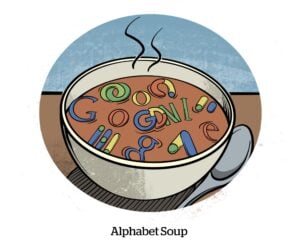Here’s today’s AdExchanger.com news round-up… Want it by email? Sign up here.
Sandboxers In The Ring
The Trade Desk is saying farewell to the Chrome Privacy Sandbox, and it’s firing parting shots on the way out.
In its view, the APIs in the Privacy Sandbox will devalue open internet advertising, while Google’s ad tech business could be one of very few winners in the new market, writes Bill Simmons, TTD’s VP of product, in a column at The Current (a content marketing site operated by TTD).
[Also, haha, you have to log in with OpenPass – TTD’s single sign-on service – to access the article.]
Privacy Sandbox ads will have lower CPMs, Simmons argues, not to mention that the complexity of this browser-focused technology is likely too much for many newcomers to manage.
On top of that, on-device auctions and data capabilities could mean more latency and worse user experiences. For example, people will sometimes see ostensibly personalized ads that don’t make sense for them because the system adds randomness to its audience categories for privacy purposes.
And then there’s just the … y’know … the Googleness of it all.
“Implementing these APIs – becoming dependent on them – could leave any company at the mercy of Google’s team to keep them in place over the long run,” Simmons writes.
Google’s Epic Loss
Epic Games won its antitrust lawsuit against Google, with a federal jury finding that Google’s app store constitutes an illegal monopoly, The Verge reports.
On Android devices, the Google Play Store is the default platform that consumers use to find and download apps, and Google collects a percentage of all in-app purchases on apps downloaded through its storefront.
According to the decision, Google put itself at an unfair advantage through deals that limited the use of alternative app stores and methods for in-app payments. Google’s practice of pursuing deals with app developers to keep them loyal to the Google Play Store was also deemed anti-competitive. The jury found these practices harmed Epic, which publishes the online multiplayer game Fortnite and operates its own app store.
Epic’s victory was a bit of a shocker, since it lost a similar challenge against Apple in 2021. The Apple case came down to a judge’s ruling, whereas the Google case was decided by a jury.
Google and Epic are set to meet with the court in January to discuss possible remedies. However, Google is appealing the decision, so don’t expect the end of the Google Play Store as we know it any time soon.
Hive Mind
Specialist DSPs are back in style. That could mean ad tech focused on health care, politics (a big one right now), SMBs, digital out-of-home media and more.
But one reason vertical or channel-specific technologies rarely birth standalone categories is that success often means an acquisition by an omnichannel player.
Digital out-of-home DSP Hivestack, for instance, was acquired on Monday by Perion for $100 million, with an additional $25 million based on performance goals.
That’s a great outcome for Hivestack, which raised about $7.5 million ($10 million Canadian, to be precise) in one round in 2020. But it also means one fewer independent DOOH DSP on the market. So much for growing DOOH DSPs into a niche category of their own.
The deal makes good sense for Perion, an OG web company that’s been going strong since the 20th century. Perion started with email inbox management, jumped to web content creation and then to B2B services. For the past seven years, it’s been all about web ads. Undertone, Content IQ and Pub Ocean were its other recent acquisitions.
Now, it’s chasing people into the real world.
But Wait, There’s More!
Why connected TV is the next frontier in the privacy debate. [Ad Age]
Netflix published its first-ever actual viewership report for every title and says it will now do so regularly. [Bloomberg]
Google Search Liaison Ginny Marvin: The key levers to steer AI in Performance Max. [Search Engine Journal]
This is what happens to all the stuff you didn’t want. [The Atlantic]
This year’s CFO revolving door. [The Information]
IPG-owned MAGNA taps OpenAP to help its advertisers reach new audiences. [Variety]

















